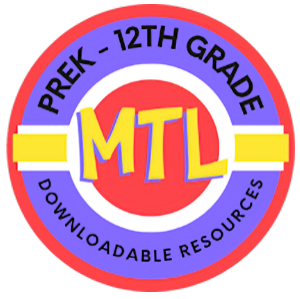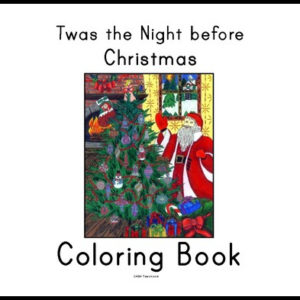Showing 1321–1340 of 1642 resultsSorted by latest
-
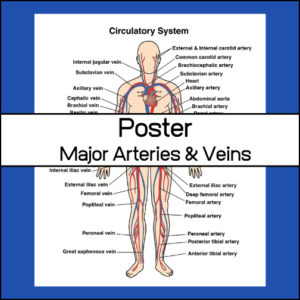 $1.50Buy Now
$1.50Buy NowThis classroom poster displays the major arteries (20) and veins (15) of the human circulatory system.
-
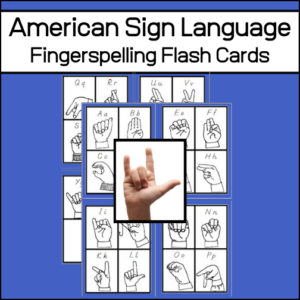 $3.00Buy Now
$3.00Buy NowHelp students learn to fingerspell (American Sign Language) using these letter – hand sign flash cards!
-
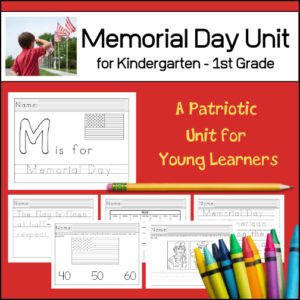 $3.00Buy Now
$3.00Buy NowA Memorial Day unit just for kindergarten and 1st graders! Students will learn about this patriotic holiday, which is observed in May as they trace, color, draw, create words, write sentences and create a card to give a current or former service member.
-
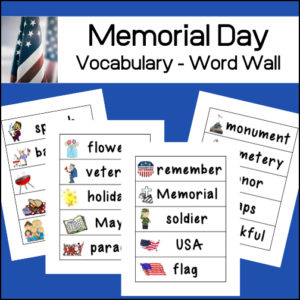 $2.50Buy Now
$2.50Buy NowThis resource includes 20 vocabulary words related to Memorial Day ready to print, laminate and use in your classroom (word wall).
Suggested uses:
– Spelling words for one week in May
– Social Studies vocabulary words to study while learning about the holiday
– Assign a Memorial Day writing lesson having students use as many words as possible -
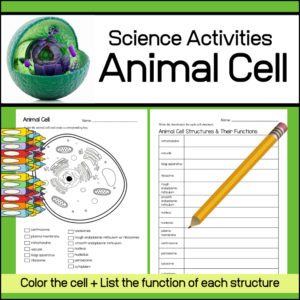 $2.00Buy Now
$2.00Buy NowThis Science / Biology resource includes 2 activity worksheets for students to help them review the structures / organelles of an animal cell and the main function(s) of each. Structures /organelles include: centrosome, plasma membrane, mitochondria, vacuole, Golgi apparatus, ribosome, lysosomes, rough endoplasmic reticulum, smooth endoplasmic reticulum, nucleus, nucleolus, peroxisome, cytoplasm
-
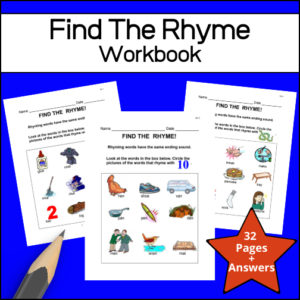 $3.00Buy Now
$3.00Buy NowThis resource includes 32 student pages (8 sets in all) of rhyming worksheets to provide plenty of practice for students learning to identify rhyming words!
-
 $5.00Buy Now
$5.00Buy NowThis is a downloadable copy of the book.
About the book: This book is a large download (over 1,300 pages) and contains all of the works of Longfellow.About the Author: Henry Wadsworth Longfellow was an American poet and educator whose works include “Paul Revere’s Ride”, The Song of Hiawatha, and Evangeline. He was also the first American to translate Dante Alighieri’s Divine Comedy and was one of the Fireside Poets from New England.
-
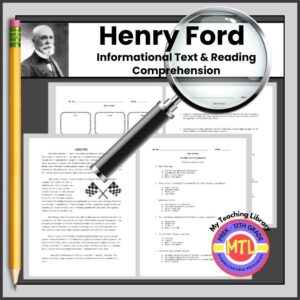 $2.50Buy Now
$2.50Buy NowWith this resource students will learn about and be tested on the life and accomplishments of Henry Ford.
Students will learn about:
– Where he was born
– What he built at the age of 15
– Where he worked as an engineer and when he built his first gasoline powered car
– What brought people to him willing to finance his new concept of manufacturing…and more!After reading, there are three worksheets for students to complete to help assess student comprehension.
– A “Who, What, When, Where, Why and How” worksheet
– A multiple-choice worksheet
– A short answer worksheetAnswer Keys provided.
-
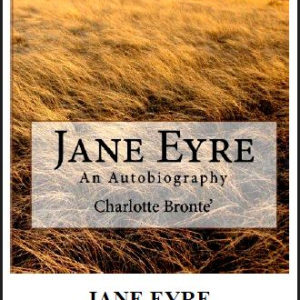 $2.50Buy Now
$2.50Buy NowThis is a downloadable copy of the book.
About the book: Jane Eyre is not a pure romance novel. It’s a complex work combing elements of the coming-of-age story and more. Despite its complexity, though, the heart and soul of Jane Eyre is the passionate love between Jane and her employer, Edward Rochester, and it’s their love story that is the most memorable element of the novel. Both Jane and Rochester are such passionate characters, but Jane’s passion is tempered with sense, while Rochester is all sensibility. Despite her social powerlessness Jane is one of the strongest women characters in fiction and by sticking to her principles she is rewarded with true love.About the Author: Charlotte Brontë was an English novelist and poet, the eldest of the three Brontë sisters who survived into adulthood and whose novels became classics of English literature. Brontë experienced the early deaths of all her siblings. She became pregnant shortly after her marriage in June 1854 but died on 31 March 1855, three weeks before her 39th birthday.
-
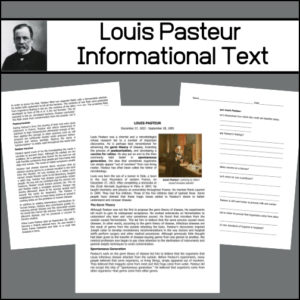 $1.75Buy Now
$1.75Buy NowThis is a resource designed to teach students about Louis Pasteur and his important contribution to science in germ theory, spontaneous generation, pasteurization and the rabies vaccine. After reading 2 pages of informational text, students will be asked 9 short answer questions to assess comprehension of the material. Answer key is provided.
-
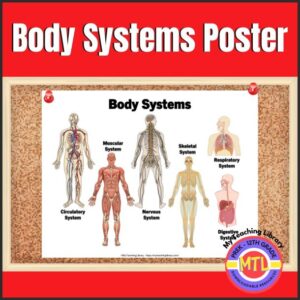 $1.50Buy Now
$1.50Buy NowStudying anatomy? Body systems? Here is “Body Systems” poster that that illustrates these systems: circulatory, muscular, digestive, nervous, skeletal and respiratory.
-
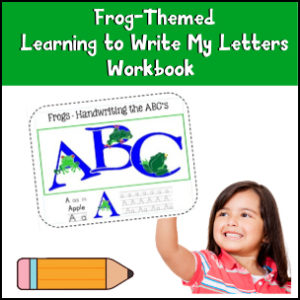 $3.00Buy Now
$3.00Buy NowYour students will love these ‘frog-themed‘ handwriting worksheets on which they can practice writing letters (upper and lower case). Each letter comes with step by step directions on correct letter formation! Color and BW worksheets included.
-
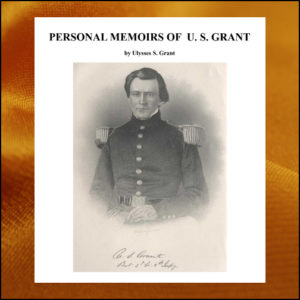 $3.00Buy Now
$3.00Buy NowThis is a downloadable copy of the book. (548 pages)
About the book: Completed just days before his death and hailed by Mark Twain as “the most remarkable work of its kind since the Commentaries of Julius Caesar,” this is the now-legendary autobiography of ULYSSES SIMPSON GRANT (1822-1885), 18th president of the United States and the Union general who led the North to victory in the Civil War. Though Grant opens with tales of his boyhood, his education at West Point, and his early military career in the Mexican-American war of the 1840s, it is Grant’s intimate observations on the conduct of the Civil War, which make up the bulk of the work, that have made this required reading for history students, military strategists, and Civil War buffs alike. This unabridged edition features all the material that was originally published in two volumes in 1885 and 1886, including maps, illustrations, and the text of Grant’s July 1865 report to Washington on the state of the armies under his command. -
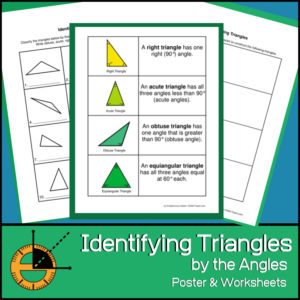 $1.50Buy Now
$1.50Buy NowThis geometry resource, Identifying Triangles by the Angles, contains a poster, 2 worksheets and an answer key.
See details in description below.
-
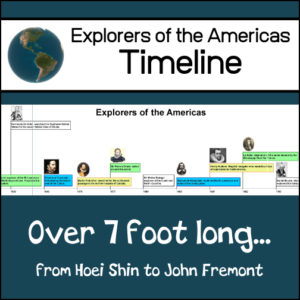 $3.00Buy Now
$3.00Buy NowThis resource will create a classroom wall timeline (over 7′ long) showing famous explorers of the Americas! The timeline begins with Hoie Shin: a Chinese monk who explored the west coast of Mexico in 499 and ends with John Fremont: nicknamed the “Pathfinder” who explored the American West in 1838. (Examples of other explorers included: Leif Ericksson, Columbus, Cabot, Cortez, Coronado, Daniel Boone, John Cook, Davy Crockett and others)
-
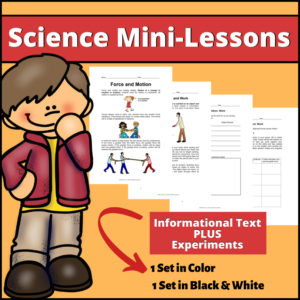 $2.50Buy Now
$2.50Buy NowStudying ‘Force & Motion‘ in your classroom? This Mini-Lessons resource has been designed to help students gain a greater understanding as well as to help them retain the information they are learning!
Includes:
- 2 Instructional text pages ( 1 on Force and Motion and 1 one on Force, Motion and Work)
- 2 Experiments (1 Cooperative Group experiment focusing on how ‘unbalanced forces cause motion‘ and to show ‘how energy can be transferred’. )
- 1 Worksheet Activity (Students will find and list examples of ‘machines and work‘ as well as draw an illustration.
-
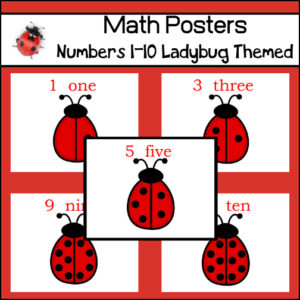 $2.00Buy Now
$2.00Buy NowCute ladybug themed Math classroom posters to help early learners learn to count to 10.
-
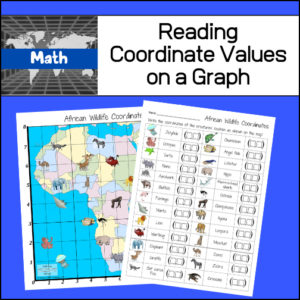 $1.50Buy Now
$1.50Buy NowHelp students practice and reinforce their knowledge of identifying coordinate graph values with this fun exercise. Students will be given a map of Africa with several animals scattered throughout the graph. They will be asked to identify the coordinate value where each animal can be found!
-
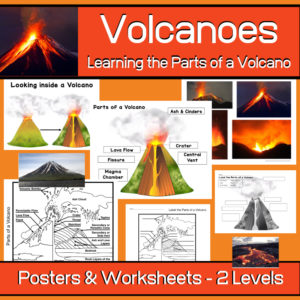 $3.00Buy Now
$3.00Buy NowHelp students master their knowledge of the parts of a volcano with these posters, handouts and worksheets! This resource provides 2 levels of learning plus worksheets come with and without terms. (Landforms, Earth Science, Geology)
